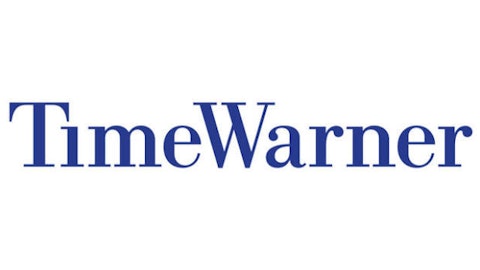This weekend, NASCAR goes south of the Mason-Dixon line — way south. In Atlanta, 43 drivers will compete in the AdvoCare 500, part of the Sprint Cup Series. The Chase for the Sprint Cup continues as teams fight for the right to join Jimmie Johnson, Clint Bowyer, and Matt Kenseth in NASCAR’s postseason. Nine slots remain to be filled, and depending on how they perform, four drivers may win entry after Sunday’s race.

Source: Wikimedia Commons.
The race will be held at Atlanta Motor Speedway, a 1.54-mile, quad-oval track in Hampton, Ga., 25 miles south of Atlanta. AMS bills itself as “one of the country’s top sports, corporate, family and entertainment facilities,” with permanent seating for 98,000 fans, and room to accommodate at least 125,000 on race day. But if you can’t make it down to join them, that’s OK.
NASCAR will be just as happy if you sit at home and watch, or listen to the race instead.
It’s all right there in the motto
Georgia’s state motto is “Wisdom, Justice, and Moderation.” And you have to admit, heading to Atlanta in the middle of summer probably isn’t all that wise. The forecast is calling for 86-degree highs — far from moderate — and for rain on race day, which hardly seems just.
The race starts Sunday at 7:30 p.m. local time and will be broadcast live on both ESPN and on the Performance Racing Network Radio channel on SiriusXM Radio. If you can’t make it down, though, both Sirius XM Radio Inc (NASDAQ:SIRI), and The Walt Disney Company (NYSE:DIS), which owns ESPN, would love to get your business — and as we’ll see in a moment, NASCAR has little reason to complain if that’s the way you choose to “attend” the event.
The economics of NASCAR
Atlanta Motor Speedway opened for business in 1960 — at a reported construction cost of just $1.8 million. Speedway Motorsports, Inc. (NYSE:TRK) CEO Bruton Smith bought it for $19.8 million 30 years later.
Since then, he’s invested millions in improvements to AMS, including building the 25,000-seat Elliott Grandstand, the Earnhardt, Champions, and Winners Grandstands, and the nine-story Tara Place condominium and office development. Throw in a Trackside Terrace Luxury RV Camping area, as well as new media facilities, garages, and fan support buildings — and AMS now modestly calls itself “a modern motorsports palace.”
Now, you might think that after making such a big investment, Speedway Motorsports, Inc. (NYSE:TRK) would like to get a few paying customers to show up. And well — sure, it would. An Atlanta Sports Council study conducted in 2000 estimated that AMS accounts for “more than half” of metro Atlanta’s sporting-derived revenue –$2 billion annually, which was more than all of Atlanta’s other sports teams generated, combined.
Still, attendance is hardly mandatory.
Atlanta Motor Speedway keeps mostly mum on the economics of how it works. But its owner is a public company, and has to disclose at least some information on how it works. According to public filings with the SEC, Speedway Motorsports, Inc. (NYSE:TRK), the owner of AMS and seven other tracks, makes its money from:
1). licensing network and cable TV and radio rights — that’s where ESPN and Sirius XM Radio Inc (NASDAQ:SIRI) come in
2). selling tickets to the events (naturally)
3). selling advertising and promotion rights to companies who want their name showing up on those television cameras, panning the course of the speedway
4). earning commissions on food and beverage sales
5). selling souvenirs and other merchandise, both on-site and off
6). and other activities.
As a general rule, Speedway Motorsports, Inc. (NYSE:TRK) gets about 24% of its revenue from admissions, 31% from other “events-related revenue” — food and beverage and souvenir sales. Its biggest money-maker, though, is from broadcasting the races — $192.7 million last year, or 39% of total revenues.
Indeed, as admissions and “event-related” revenues have declined (down 38% and 28%, respectively, over the past four years), broadcasting revenue is about the only thing going up at Speedway. (Up about 14.5%.) That’s actually great news for AMS (and for Speedway itself), because the way NASCAR splits up its broadcast revenue, the bulk of the money — 65% — goes to racetracks such as AMS. Only 25% going to the teams and drivers, and 10% to the NASCAR organization itself.
Long story short, if you can’t make it to the race, and have to just tune in — that should be fine with NASCAR, with AMS, and with Speedway Motorsports. They’ll take your money any way they can get it.
The article Money Matters in NASCAR: Atlanta Motor Speedway originally appeared on Fool.com and is written by Rich Smith.
Fool contributor Rich Smith has no position in any stocks mentioned. The Motley Fool recommends Walt Disney. The Motley Fool owns shares of Walt Disney.
Copyright © 1995 – 2013 The Motley Fool, LLC. All rights reserved. The Motley Fool has a disclosure policy.




